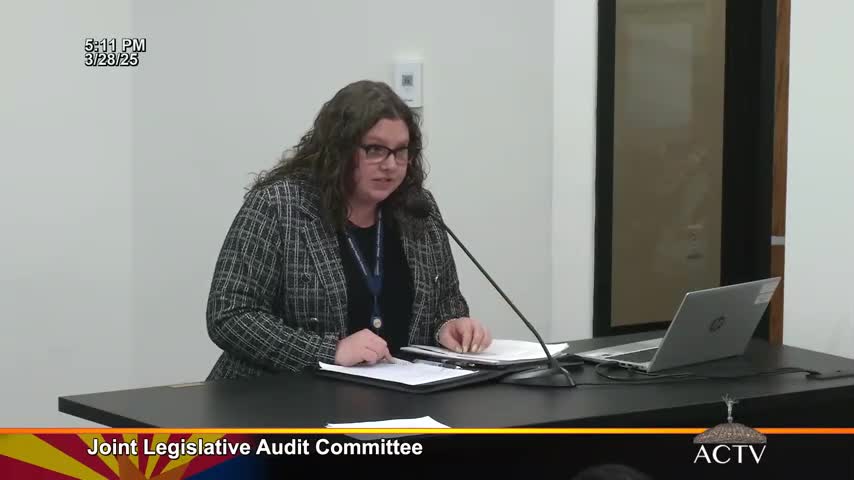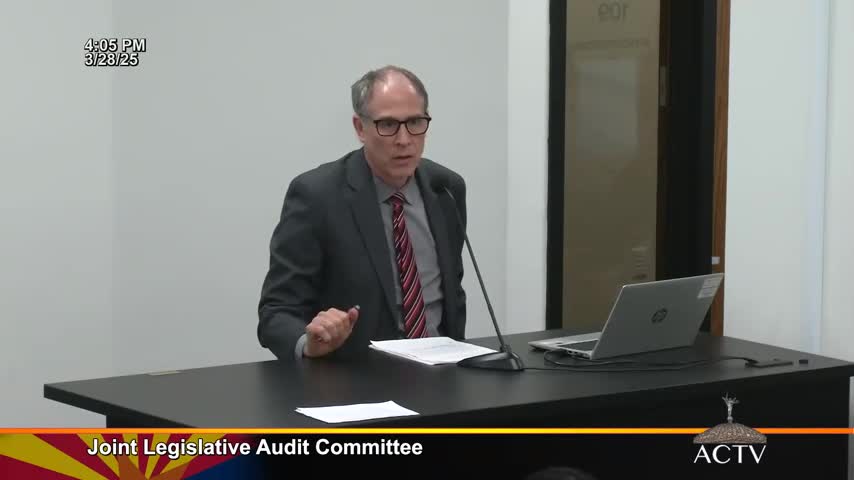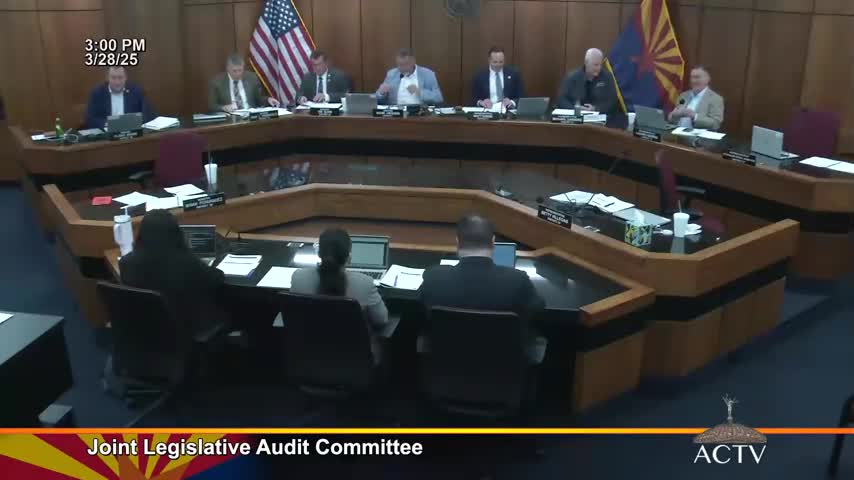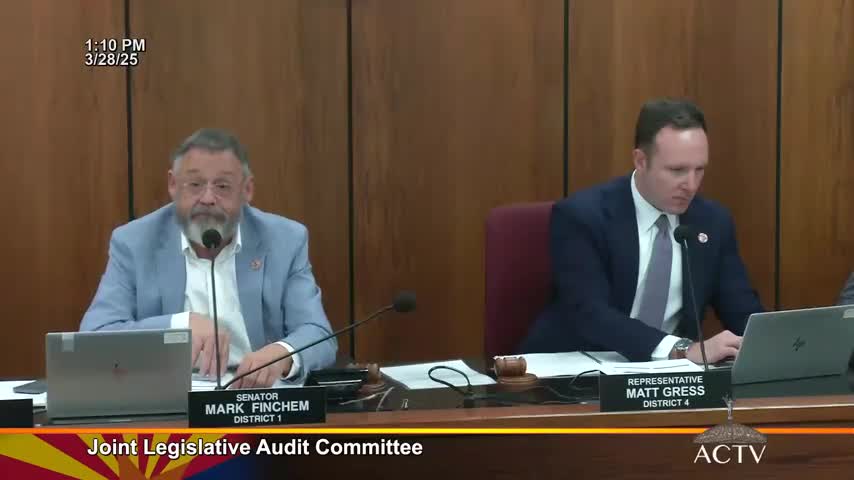Article not found
This article is no longer available. But don't worry—we've gathered other articles that discuss the same topic.

Arizona misses federal audit deadline again; state officials say reforms and extra staff have cut delays

State audit finds nursing-home complaint investigations often late or incomplete; ADHS says improvements underway

Auditors flag conflict-of-interest gaps at PSPRS; trustees defend new disclosure process

